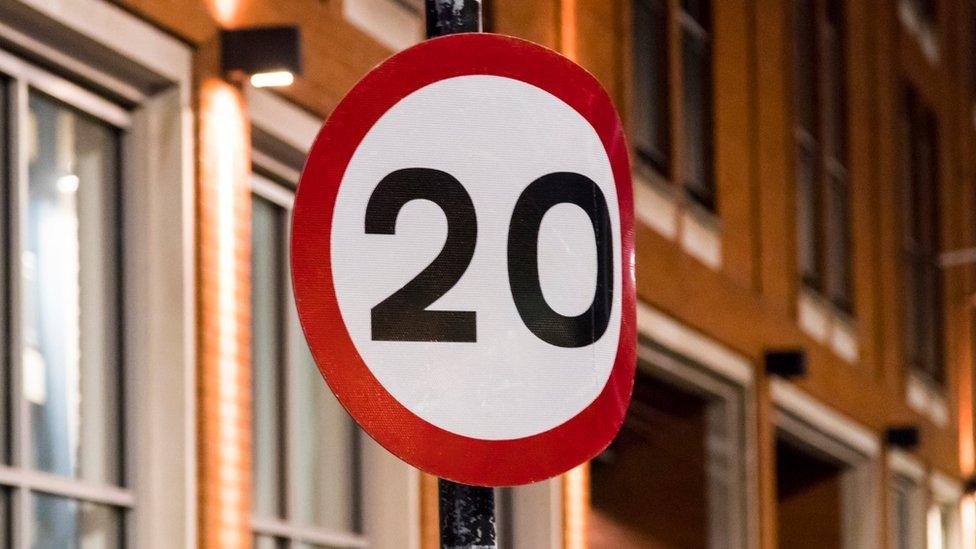20mph default speed limits to be trialled in eight areas of Wales
- Published
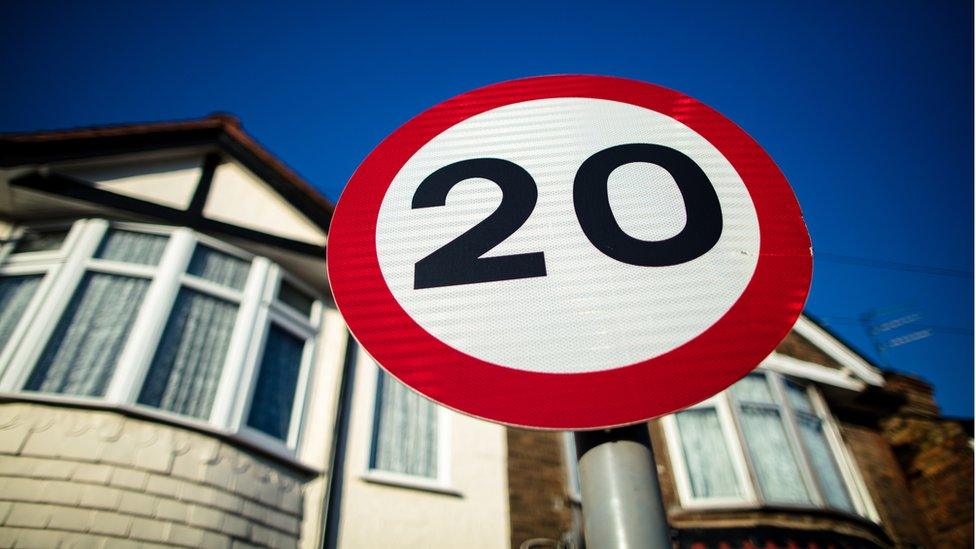
Deputy Minister Lee Waters said a survey found strong support for the change
Eight areas of Wales will trial 20mph speed limits from this summer, ahead of a national rollout by April 2023.
The Welsh Government has previously revealed plans to make 20mph the default speed limit in residential areas. It is currently 30mph.
Most of the trial areas are in south-east and south-west Wales, with one town in north-east Wales to take part.
The change is "a bold step that will save lives", said Lee Waters, Deputy Minister for Economy and Transport.
The government said it hoped the pilots would "help develop enforcement arrangements and overcome unforeseen issues".
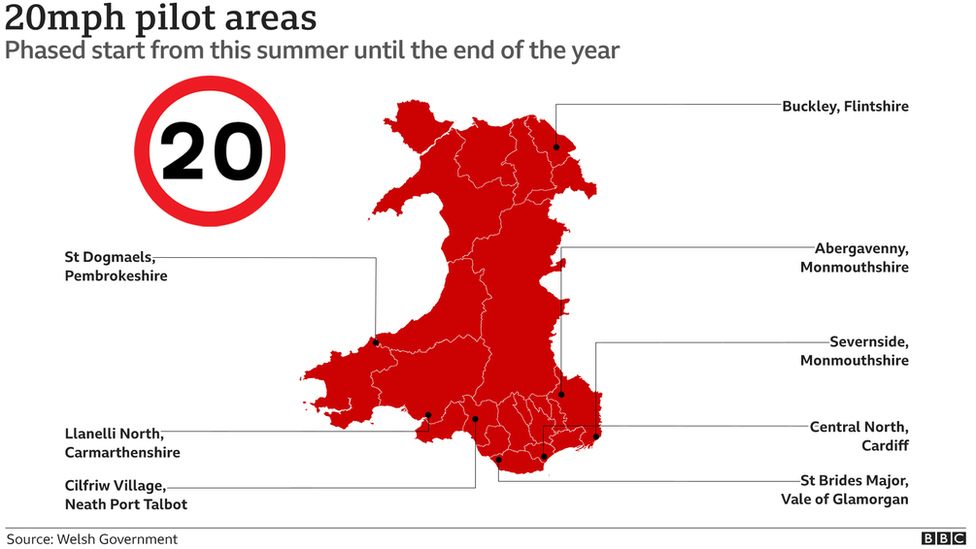
The areas, which are designed to be a "representative sample" of villages, towns and cities across Wales, are:
Abergavenny, Monmouthshire
Central North, Cardiff
Severnside, Monmouthshire
Buckley, Flintshire
Cilfriw Village, Neath Port Talbot
St Dogmaels, Pembrokeshire
St Brides Major, Vale of Glamorgan
Llanelli North, Carmarthenshire
The trial schemes will "focus on community engagement", the government said, with an emphasis on communicating "the value of the new speed limit".
Mr Waters said a national public attitude survey of 1,000 people living in Wales aged 16 or over had found "strong support" for the measures, especially among parents.
The deputy minister said 92% of those who said they would like to see a change suggested a speed limit of 20mph or lower.
"We have made progress on reducing deaths and serious injuries on our roads over the 21 years of devolution, but despite our considerable efforts the highest proportion of all casualties - 50% - occurred on 30mph roads during 2018," Mr Waters said.
"This cannot be tolerated, so a reduction to 20mph on our residential and other busy pedestrian urban roads has to be the way forward.
"Decreasing speeds reduces accidents and saves lives, and alongside this the quality of life will improve, making room on our streets for safer active travel. This helps reduce our environmental impact and has a positive outcome for our physical and mental well-being."
What are the reasons for the change?
A Welsh Government-commissioned taskforce published a report, external in July 2020, which said there was "overwhelming evidence" that lower speeds result in fewer collisions and a reduced severity of injuries.
It said public opinion was likely to support the change, and set out what ministers would need to do to enforce it.
The report called for a series of public awareness campaigns and said it was important the police and the speed camera partnership were committed to enforcing 20mph speed limits, "so that driver behaviour can begin to be changed".
The report also said it would be up to local authorities to identify roads that should not be subject to the 20mph limit.

THE STORY OF MIWSIG: As Beatlemania gripped the world, something was stirring in Wales' rural concert halls
WHEN LORNA MET LEO: Trying to find love in the time of Covid

- Published15 July 2020
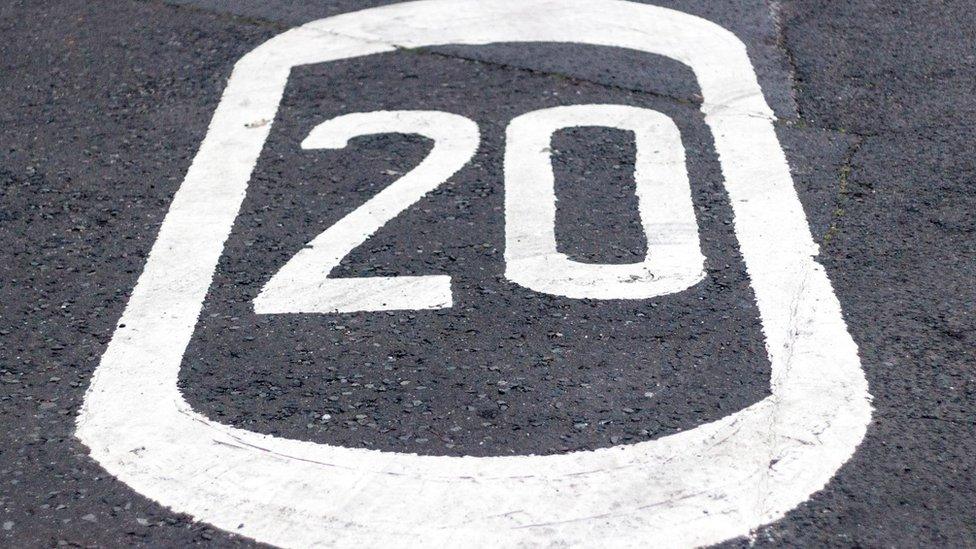
- Published13 February 2018
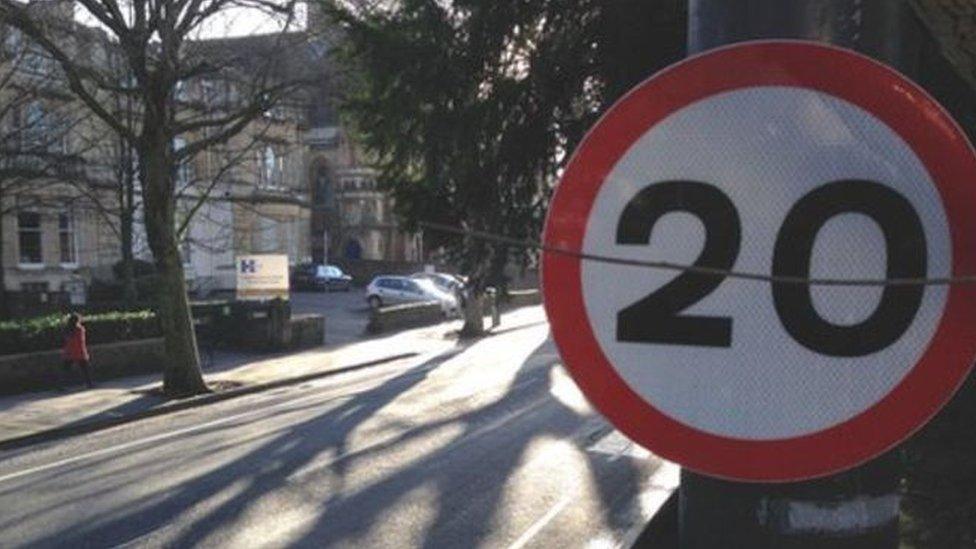
- Published16 June 2018
